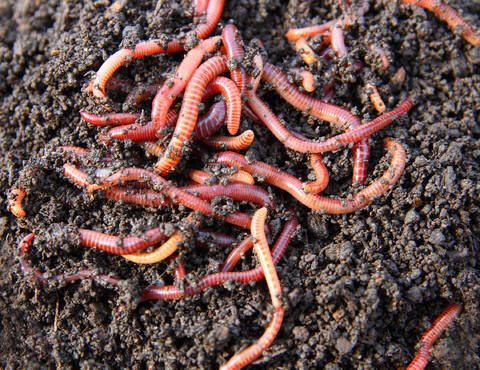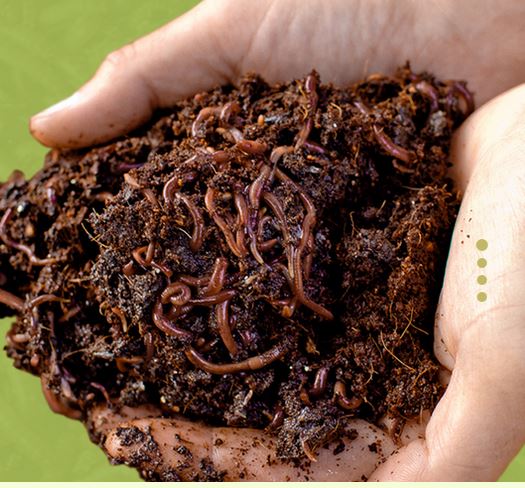Composting red wigglers: Essential tips for beginners
Wiki Article
Why Red Wigglers Are Crucial for Chemical-free Farming
Red wigglers play an essential function in natural farming, mostly via their special ability to decay natural products and enhance soil health and wellness. Their task not just improves the soil with necessary nutrients however additionally cultivates a thriving environment crucial for sustainable farming. The physical processes they involve in, such as oygenation and wetness retention, add significantly to boosted plant yields. Nevertheless, the degree of their influence on farming techniques and soil biology raises fascinating concerns regarding the future of chemical-free farming. What ramifications might this have for farming methods?Role of Red Wigglers in Soil Wellness

Additionally, red wigglers enhance dirt structure by producing channels as they tunnel. These networks boost aeration and water infiltration, advertising a healthier root setting. Their activity additionally aids in keeping optimum wetness levels, which is critical for healthy and balanced plant growth.

Benefits of Worm Spreadings
Worm spreadings, the nutrient-rich excrement produced by red wigglers, function as an effective change for natural farming. These spreadings are loaded with crucial nutrients such as nitrogen, phosphorus, and potassium, which are vital for plant development. Unlike synthetic fertilizers, worm castings release nutrients gradually, providing a stable supply gradually and reducing the risk of nutrient leaching and runoff.Additionally, worm castings enhance soil framework and oygenation, promoting much healthier root systems. Their high natural issue content enhances dampness retention, making it possible for plants to much better stand up to dry spell problems. Additionally, worm spreadings consist of valuable bacteria that support plant health by suppressing microorganisms and improving vitamins and mineral uptake.
The application of worm spreadings can lead to increased crop returns and enhanced high quality of fruit and vegetables, making them a vital resource for organic farmers. Their usage also aligns with sustainable farming practices, contributing to soil fertility without the adverse environmental effects connected with chemical plant foods. Generally, the consolidation of worm spreadings right into farming practices cultivates a more resistant and efficient community, underscoring the importance of red wigglers in chemical-free farming systems.

Enhancing Nutrient Biking
(red wiggler farming)Vitamins and mineral cycling is a crucial procedure in natural farming, and the combination of red wigglers plays a pivotal role in improving this cycle. These earthworms contribute dramatically to the breakdown of raw material, facilitating the change of complex organic materials into easier, more obtainable nutrients for plants. As red wigglers eat decomposing raw material, they excrete nutrient-rich spreadings, which are including helpful microbes. This microbial activity additional aids in the disintegration process, making certain that necessary nutrients are readily available for plant uptake.In addition, red wigglers help to increase the mineralization of nutrients, transforming them from inert types right into bioavailable kinds that plants can absorb. This process is critical for maintaining dirt fertility and promoting healthy plant growth. The visibility of red wigglers likewise encourages a varied dirt ecological community, promoting a balance of nutrients that sustains different plant types.
Improving Dirt Structure
The improvement of soil structure is essential for promoting a healthy and balanced farming environment, and the activity of red wigglers considerably contributes to this enhancement. These earthworms play an important role in freshening the dirt and creating a network of networks that assist in water infiltration and origin infiltration. As they delve with the soil, red wigglers break up compacted layers, enabling better oxygen exchange and promoting microbial activity.Furthermore, the natural matter created from their waste, referred to as vermicast, improves dirt gathering. This process creates stable clumps of dirt fragments, enhancing dirt porosity and reducing erosion (red check that wigglers). The existence of red wigglers additionally motivates the advancement of useful fungal networks, which are critical for nutrient uptake by plants
Promoting Lasting Practices
Incorporating red wigglers into chemical-free farming methods not only enhances dirt health and wellness but also promotes lasting farming methods. These earthworms play an essential duty in nutrition cycling, transforming organic waste right into important compost that enhances the dirt. By making use of red wigglers, farmers can properly reduce reliance on synthetic plant foods, thus lessening chemical overflow and its destructive results on ecological communities.Moreover, the unification of red wigglers motivates the practice of reusing organic products, such as kitchen scraps and ranch waste. This waste reduction method not just lowers disposal expenses however additionally fosters a closed-loop system where nutrients are constantly returned to the dirt (red wigglers). Such methods are important in minimizing environment adjustment, as they enhance carbon sequestration and reduce greenhouse gas discharges
Additionally, red wigglers improve water retention in the dirt, which is crucial in times of drought. Their burrowing activities produce channels that permit water to pass through much deeper into the ground, therefore advertising reliable water use. Eventually, incorporating red wigglers into natural farming not only supports biodiversity but additionally straightens with the concepts of lasting farming, using an all natural technique to food production.
Verdict
In verdict, red wigglers play a crucial function in organic farming by dramatically boosting dirt wellness and fertility. Their ability to disintegrate raw material and generate nutrient-rich spreadings fosters a successful microbial neighborhood, which is essential for vitamins and mineral cycling. In addition, the burrowing tasks of these worms boost dirt framework and aeration, helping with far better water seepage and origin development. Thus, the combination of red wigglers right into agricultural practices is vital for advertising sustainability and enhancing overall dirt quality.Report this wiki page